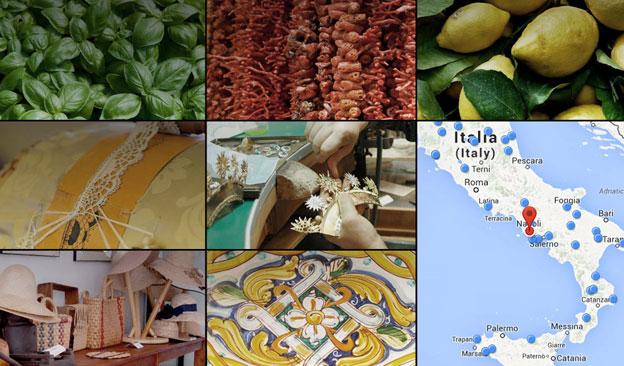In 2013, Google searches related to made in Italy products increased by 12%; the most searched category was fashion, while tourism and food marked the most significant growth.
With the aim of showcasing Italy’s outstanding food and craftsmanship cultures, the Google Cultural Institute, in partnership with The Italian Ministry of Agriculture, Food and Forestry, launched the “Made in Italy: Digital Excellence” project.
On the platform, available at www.google.it/madeinitaly, about a hundred digital displays, made of short stories in Italian and English, images, videos, and historical documents, show users the excellence of Italian food and craftsmanship, its history and deep connection with the Italian territory. Products range from the most famous ones, such as Parmigiano Reggiano, Grana Padano, Prosciutto di San Daniele, Parma ham, Murano glass, to lesser-known items like the accordion of Vercelli, the lace of Ascoli Piceno, the coral of Trapani, the carota novella (new carrot) of Ispica.
By showcasing the excellence of the Made in Italy online, the idea is to bring Italian businesses closer to the web and its great economic and export potential by providing digital training, especially to small-medium enterprises, with the idea that further expanding into international markets will help contribute to the country's needed economic growth.
Another important goal of the project is to contribute fighting against counterfeit Made in Italy, what is known as “Italian sounding,” the use of geographical names, trademarks and images that evoke Italy to market and sell products that in reality have nothing to do with it, a practice that, incidentally, subtracts 60 billion euros in revenues each year to Italy’s economy.









